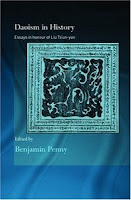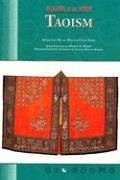 The Essential Tao: An Initiation into the Heart of Taoism Through the Authentic Tao Te Ching and the Inner Teachings of Chuang-Tzu
The Essential Tao: An Initiation into the Heart of Taoism Through the Authentic Tao Te Ching and the Inner Teachings of Chuang-Tzu
Thomas Cleary presents original translations of the two ancient Chinese texts that describe the essential philosophy and practice of the Tao, or "universal way." The Tao Te Ching, Lao-tzu's classic anthology of sayings, poems, and proverbs, appears here in its entirety; Cleary's excellent, detailed notes to each of the 81 stanzas illuminate the more difficult verses and unfamiliar ideas. The first seven, or "inner" chapters of the Chuang-Tzu, those containing the essence of the Taoist master Chuang-tzu's teachings, are also presented, with accompanying notes explaining the philosophy and significance of the symbolic stories. Readers already acquainted with the two texts will find renewed enjoyment in the directness and simplicity of Cleary's translations, which are particularly pleasing to modern ears while losing none of the nuances of the originals.
The well-known opening lines of the Tao Te Ching, for example, are given new life: "A way can be a guide, but not a fixed path; names can be given, but not permanent labels." And there is a clarity in the passages from the Chuang-Tzu not often found in other interpretations: "Who knows the unspoken explanation, the unexpressed Way? Among those who do know, this is called the celestial storehouse: we can pour into it without filling it, we can draw from it without exhausting it; and yet we don't know where it comes from." The subject matter of both texts ranges widely, from politics and economy to psychology and mysticism, addressing the needs and interests of a diverse readership. No less relevant today than when they were written more than 2,000 years ago, there is a "perennial currency" to these writings achieved by few of the world's great books. Cleary's readable introduction and notes provide an elegant frame that complements the quiet grandeur of these important texts.
DepositfilesTurbobitSharingmatrix



















